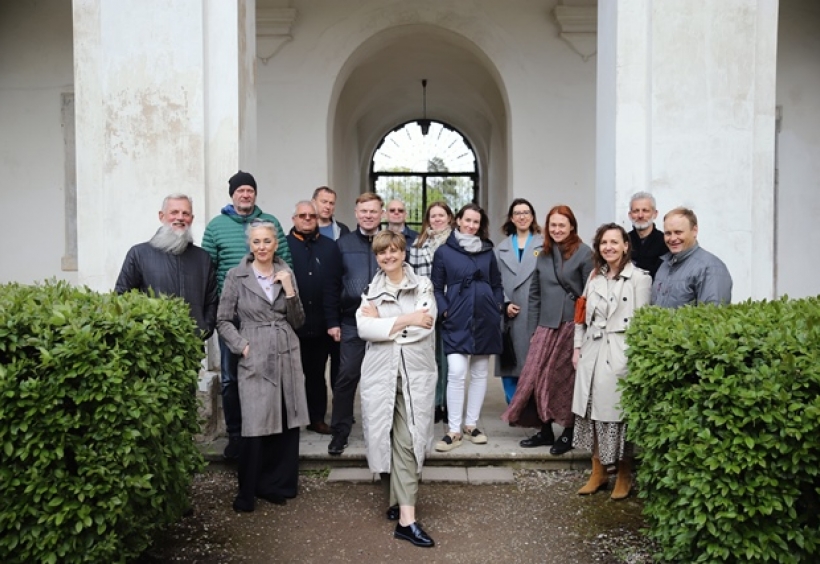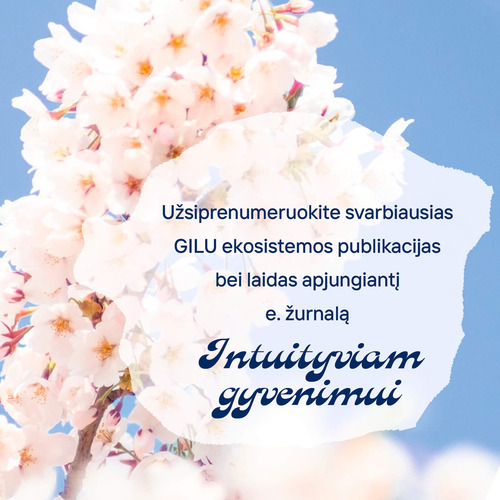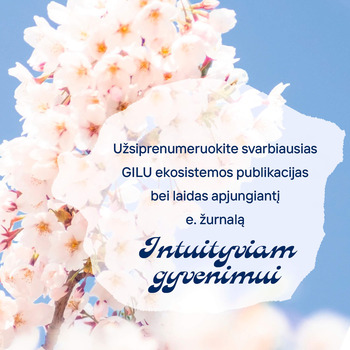
The meaning of free time today has been transformed and has lost its profound meaning. Cultivated in antiquity and the Renaissance, it was a precondition for the emergence of European culture, but today it feeds the entertainment industry rather than enriching us. The Ukrainian philosopher Andrii Baumeister and his insights into the culture of leisure have helped us to understand what has happened to leisure and its meaning, why it has changed so much in the 20th century and why it remains distorted today. One of the aims of the GILU Club is to take a fresh look at the meaning of free time and reclaim it. Baumeister sees it as the key to a happy, successful and rich life. Here are his key ideas about free time:
"We don't prepare for leisure from childhood or youth, and we don't think we should know how to spend our leisure time. This is a critical human error. We are made for leisure, and leisure needs to be learned. Leisure is the key to realising a successful, fulfilling life. The questions of who am I, how do I live and what is my life like depend on the answer, how do I spend my leisure time?"
"Nowadays we use a lot of words like successful life. We take this phrase from Aristotle, but we reflect on it in the context of the twenty-first century. To be successful in our time means to be successful financially, but that is not true according to Aristotle's concept. Aristotle argues that a successful life is basically just a life that has achieved a goal, a result. It is a successful life, a full life. The key to such a life is leisure."
"Leisure is the key to unlocking an understanding of both the individual and human history. In 1948, Josef Pieper published his essay "Leisure as a source of culture". It is about European culture, but it can also be applied to the whole of civilisation. In this case, culture and civilisation become synonymous."
"A precise description of leisure can be found in Plato's 'Dialogue'. If we compare those young men who crowd into the court and similar institutions with those who spend their leisure time in philosophy and scientific debate, the education of the former will be slavish and that of the latter free." So, there are young people who hang around in courts and other places, they want to make themselves known, they are engaged in slave labour and they spend their time slavishly. Meanwhile, there are other young people who spend their time socialising and debating. This is what Plato calls leisure. The quotation ends: "The latter are never short of leisure and they reflect on their ideas in peace and freedom." So Plato identifies leisure with freedom."
"By stressing the importance of work, the reformers have overshadowed a very important achievement of the Middle Ages and Antiquity. What can be called vita contemplativa is a life of observation, the practice of observation. The medieval mystical term meditaciones (not to be confused with Eastern meditations) referred to the time when a person, withdrawing from his daily chores, devotes an hour or more to spiritual meditation, and then another element emerges."
"If we indulge in workaholism, if we become obsessed with work (which was the case in the twentieth and twenty-first centuries), we consider our important window of the soul closed. We will not know ourselves, we will not enter into ourselves, we will not know our true being, and we will not get the space for freedom. That is why in the 20th century, especially since the middle of the 20th century, the most important thinkers have returned to leisure."
"Leisure has become the pastime of the majority; it is not directed towards the personality of each one of us, but only to restore our physical and emotional strength for work. In other words, leisure is a continuation of work, with the aim of restoring the worker's energy so that he can continue working. This could be called the destruction of leisure or the loss of its meaning."
"Regularity is important for leisure. In regularity we improve ourselves little by little. Two elements come together at once: the richness of the present moment and the profundity. What I am doing now takes on a profound change, because the richness is involved in the passage of a certain path and reflects the story that I am creating for myself."
"Our leisure time is designed to make our bodies more attuned to multiple functions, to make us resilient, healthy. The second level is working with feelings and emotions. Yes, your leisure time becomes work with feelings and emotions. Here, walking in the park, listening attentively to music, looking at paintings is working with your attitudes and emotional experiences. In every situation, leisure time improves this expression. Imagination is even higher. Our imagination is the source of many discoveries, and leisure opens it up to us. And finally, thinking. Leisure makes our thinking better, deeper, broadens our view."
"We want to cram our free time with anything to avoid boredom. Anyone who knows how to spend their free time will never be bored with themselves, with others or with nature. It is a great art to create oneself, the environment around oneself - both natural and human. It was in this kind of leisure that Europe and the civilised world were built."
"We need to learn how to spend our leisure time, just as we need to learn the competences for work. It is an art to be mastered - preferably with friends you trust, or if not, on your own. Learning to spend our leisure time requires the ability to combine all levels of our personality."
Source: Baumeister's lecture on leisure culture: https://rb.gy/bdnpvg

